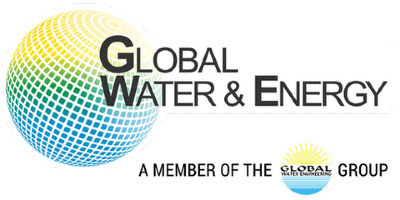Carnes de Coclé, a Panamanian international exporter of meat products, is setting high environmental standards for the meat processing industry with a new Global Water & Energy (GWE) wastewater treatment plant engineered to achieve 98% organic matter* removal from the post-production wastewater.
Carnes de Coclé, a subsidiary of Panama Beef Packers Corporation, has always been committed to meeting the highest international food handling regulations by using the latest technologies and equipment the meat industry has to offer.
“Therefore it comes as no surprise that this family-owned company selected proven GWE technologies to handle their meat processing wastewater in their Panamanian facility. With an expected reduction of 98 percent of organic contaminants from the wastewater, Carne de Coclé ensures to return high-quality effluent to the environment, without a negative impact on the local water bodies,” says GWE.
Made to measure design, with proven technologies
By custom-engineering with the application of the proven GWE technologies into the ideal configuration for this particular application, Carnes de Coclé is optimizing operational simplicity and cost-efficiency.
Possible pathogens, oils, grease and detergents coming from the abbatoir are removed from the waste stream by several highly-effective pretreatment steps, including one of the most efficient dissolved air flotations systems on the market – SUPERFLOT – AIR.
The heart of the treatment is GWE’s SEQUOX – 2, a two tank Sequencing Batch Reactor (SBR) system.
Thanks to automatic parallel operation of the two SBRs, different stages of the treatment can take place at the same time. With feeding, aeration, and settlement happening in the same tank, space and investment costs were reduced without affecting the degree of treatment.
After the biological treatment, effluent that is free of nutrients can be disinfected and safely discharged to a nearby river. The highly-effective wastewater treatment plant is only part of the efforts focused on reducing the environmental impact of the facility. An advanced solids waste management system that has already been implemented significantly contributes to the reduction of the biological sludge volume and costs needed for its disposal.
GWE says that, with innovations such as those introduced by Carne de Coclé, other slaughterhouses and other food or beverage production facilities generating organic wastes and wastewater, can all decrease their environmental footprint and contribute to global sustainability goals.
“Through the effective treatment of the wastewater and management of solid waste, Carne de Coclé is providing an outstanding example of environmental responsibility.”
“By partnering with the GWE, the company gained an experienced partner capable of delivering a treatment plant focusing on solving various environmental concerns so they could contribute to Panamian goals of balancing the economic development with environmental protection.”
*expressed as Chemical Oxygen Demand (COD); COD is an indicative measure of the amount of oxygen that can be consumed to oxidize the pollutants present in water, a COD value is water or wastewater quality indicator.











